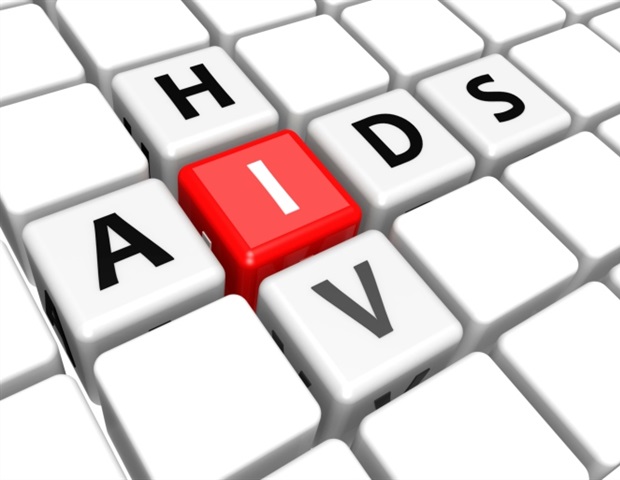The U.S. Centers for Disease Control and Prevention (CDC) and the President’s Emergency Plan for AIDS Relief (PEPFAR), have awarded $27.5 million to the Center for Global Health Practice and Impact (CGHPI) at Georgetown University Medical Center to expand its ongoing work in Haiti to address HIV/AIDS.
For the 150,000 people in Haiti living with HIV, losing access to basic life-saving therapy can lead to unnecessary suffering, risk of transmission to others, and possible early death.
Deeply anchored in Georgetown’s value of cura personalis, our work in Haiti provides holistic, person-centered services where it’s most needed.”
Babatunji Oni, MBBS, MBA, MSc-PH, principal investigator of the new award
Working amid significant political instability, poverty and violence, members of the CGHPI’s Haiti-based team have become experts in adapting care delivery.
Beginning in 2020, with funding from the PEPFAR/CDC, CGHPI team members engaged and facilitated the return to care of 6,000 people living with HIV, and established 57 client-centered drug dispensing points in all regions of the country, giving patients greater access to effective antiretroviral treatment.
These efforts help ensure that people living with HIV/AIDS (PLHIV) maintain optimal health outcomes, including suppressing the virus and preventing further transmission. In addition, CGHPI team members engaged more than 1,000 Haitians, most of whom are PLHIV, in economic empowerment activities, an aspect linked to better health outcomes.
“The vital work conducted by our Georgetown CGHPI team in Haiti brings health and hope to thousands of people each year-;not only to those living with HIV, but to their family and friends,” says Norman J. Beauchamp Jr., MD, MHS, executive vice president for health sciences and executive dean of the School of Medicine. “Most encouraging is that this work is led by the people of Haiti ensuring its sustainability. The people of Haiti are facing so many challenges in their country and we’re grateful to the CDC and PEPFAR for their unwavering support of this lifesaving work.”
Deus Bazira, DrPH, MPH, MBA, director of the Center for Global Health Practice and Impact, and director of the Georgetown University Global Health Institute echoed his appreciation for the strong commitment to the program.
“We are grateful to the CDC and PEPFAR for their recognition and support of this very important and life-altering work for people living with HIV. This work is possible because of our strong team on the ground working in collaboration with the Haiti Ministry of Health, PEPFAR/CDC, international and local partners, civil society, health facilities, health care providers and patient advocacy groups.”
He said the “whole-of-society” approach has resulted in innovative differentiated service delivery models to meet the care needs of PLHIV, even in the midst of uncertainty brought about by insecurity in the country.
The CGHPI’s initial project in Haiti called TIDE — Translating Data Into Evidence — demonstrated the ability to successfully get people with HIV who had previously dropped from care, back onto therapy, and establish effective systems to keep them engaged in care. The program was built on a platform of data and science, leveraging low-cost but effective technology solutions to enhance access to care, and through use of data to better understand clients’ differences and preferences when it came to designing interventions that work for them.
The success of the program contributed to funding awarded for a new program that starts on September 30 and runs through September 29, 2029. The new program titled TIDE Plus builds on the successes and further innovates to ensure gains made are sustainable and cost-effective, and that new models of care delivery and interventions implemented are forward looking to anticipate future needs and changing AIDS epidemic dynamics.
Specifically, TIDE Plus will strengthen various approaches to delivering services to ensure treatment continuity; allow for machine learning and predictive modeling to better define targeted care; and support patient-led, grass-roots organizations as they partner with organizations in Haiti to sustain the HIV response.
In collaboration with the country program director in Haiti, Rachel, MD, (we are withholding Rachel’s last name for security reasons) will oversee the work that includes more than 160 health care workers and other team members country-wide who are working to connect Haitian residents with HIV medications and to understand additional needs of those living with the disease.
“What matters is that people can access their medication how and where they want,” Rachel says.
The Center for Global Health Practice and Impact (CGHPI) based at Georgetown University Medical Center, works to sustainably improve health outcomes through the generation and translation of scientific evidence into policy and practice. A leader in advancing innovations to solve intractable global health challenges, CGHPI operates in 12 countries. Its founding and continuing impetus for its work is rooted in the commitment to enhance the sustainability of global health interventions. CGHPI collaborates with governments, industry, civil society, the private sector, and philanthropic organizations to co-design and co-implement innovative solutions.
Source link : News-Medica

